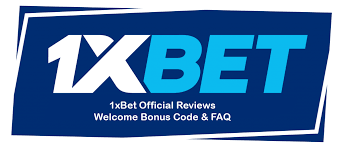
Sports bettors today must navigate a complex landscape of markets, odds, and platforms — from pre-match markets to fast-moving live lines. One popular destination for many international players is sport betting 1xbet japan, but success in sport betting goes far beyond the choice of a bookmaker. This article explores practical strategies, psychological disciplines, and analytical approaches that improve your edge and help you manage risk responsibly.
Understanding value is the cornerstone of any successful sport betting approach. Value occurs when the probability you assign to an outcome exceeds the implied probability of the bookmaker’s odds. To find value, you must (a) study the sport deeply, (b) build accurate probability estimates, and (c) compare those estimates to available odds. Strong bettors often specialize in a few leagues or types of bets where markets are less efficient, such as lower-division matches or niche sports, enabling them to spot mispriced opportunities that casual punters miss.
Bankroll management is equally essential. Without disciplined staking, even a long-term positive expected value (EV) strategy can lead to ruin due to variance. Many professionals recommend a percentage-based staking plan, where each wager is a fixed small percentage of your total bankroll — commonly between 1% and 5%. This approach protects you from long losing streaks and ensures you can capitalize on favorable fluctuations over time. Consider using Kelly Criterion for precise edge-based sizing, but be cautious: full Kelly can produce large swings, so many bettors apply a fractional Kelly to control volatility.
Line shopping is an underrated but powerful habit. Odds differ between bookmakers and exchanges; a seemingly small difference can compound into significant gains over many bets. Maintain accounts with several reputable sportsbooks, monitor lines, and strike when you detect profitable discrepancies. Use odds comparison tools and consider fast-moving markets where early positions can yield value before public money shifts the lines.
Data and analytics now play a transformative role in sport betting. Building models that predict results more accurately than bookmakers requires clean data, relevant variables, and rigorous validation. Key model inputs vary by sport: in football (soccer), metrics like expected goals (xG), shot quality, and player availability matter; in basketball, pace, efficiency, and player rotations are critical. Always back-test strategies on out-of-sample data, quantify expected returns, and be mindful of overfitting — a model that perfectly explains past results may fail in live markets.
Live or in-play betting offers dynamic opportunities but demands quick decisions and strong discipline. Live markets often reflect short-term imbalances or emotional bets from the crowd. Skilled in-play bettors who watch games closely and understand momentum can exploit transient inefficiencies, but they must use strict risk controls because prices can change rapidly. Consider setting predefined criteria for entering live bets and use cash-out options judiciously to lock in profits or cut losses when needed.

A critical psychological factor in sport betting is emotional control. Avoid chasing losses, which typically leads to larger, impulsive wagers and worsened outcomes. Develop a routine: analyze bets logically, record each wager with rationale and outcome, and review performance periodically. Keeping a betting journal aids learning and discipline — it reveals patterns in decision-making and highlights strengths and weaknesses in your approach.
Market selection influences profitability. Major professional leagues attract significant liquidity and sharp attention from sophisticated bettors and syndicates, so their markets are often efficient. Contrarily, smaller leagues, youth competitions, and regional events can present softer lines and more frequent value bets. However, softer markets also carry higher information risk, such as less reliable reporting on injuries or team news, so balance potential advantage with the ability to gather accurate information.
Understanding odds formats and implied probabilities is fundamental. Decimal odds are common internationally; convert them to implied probabilities by taking 1 divided by the odds. Then account for the bookmaker’s margin (overround) to estimate whether a line offers fair value. Betting exchanges introduce an alternative mechanism: you can both back and lay outcomes, effectively acting as the bookmaker yourself when you identify overvalued prices.
Responsible gambling practices are non-negotiable. Set deposit and loss limits, never stake money you cannot afford to lose, and recognize signs of problematic gambling behavior such as preoccupation with betting, neglecting obligations, or increasing stakes to recoup losses. Many bookmakers provide self-exclusion tools and cooling-off periods; use them if needed. Treat sport betting as a long-term investment-like endeavor where edge and discipline matter more than impulsive bets or the pursuit of quick wins.
Community and information flow matter too. Engage with reliable sources — reputable statistical sites, club reports, and expert analysis — but avoid echo chambers that reinforce biased views. Forums and tipsters can be valuable for ideas, but verify claims independently and be skeptical of guaranteed systems. A disciplined process of independent research, model checking, and selective adoption of insights will keep your strategies robust.
Taxes and legal frameworks vary by jurisdiction, so always ensure compliance with local laws and regulations. Keep records of your wagers and returns for tax reporting where required. Choose licensed and regulated bookmakers to benefit from consumer protections, transparent dispute resolution, and responsible gambling safeguards. When evaluating a bookmaker, consider odds competitiveness, market depth, withdrawal policies, and customer service responsiveness.
Finally, cultivate patience. Even with a genuine edge, short-term variance will produce losing periods. The difference between hobby punters and successful long-term bettors is process consistency — sticking to tested methods, managing risk, and continually learning. Reinvest early gains into education and tools: better data sources, faster market access, and refined models. Over time, steady improvements compound, and the discipline of smart sport betting can yield sustainable returns while keeping enjoyment and responsible behavior at the forefront.